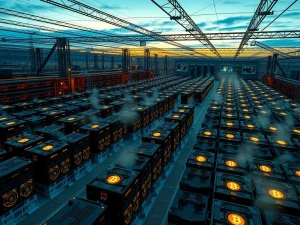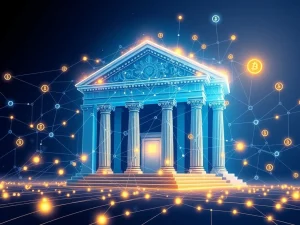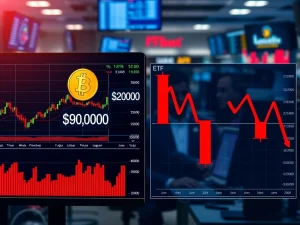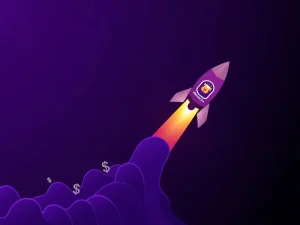Alarming: Trump-Linked WLFI Crypto Faces ‘Scam’ Allegations Over Frozen Tokens
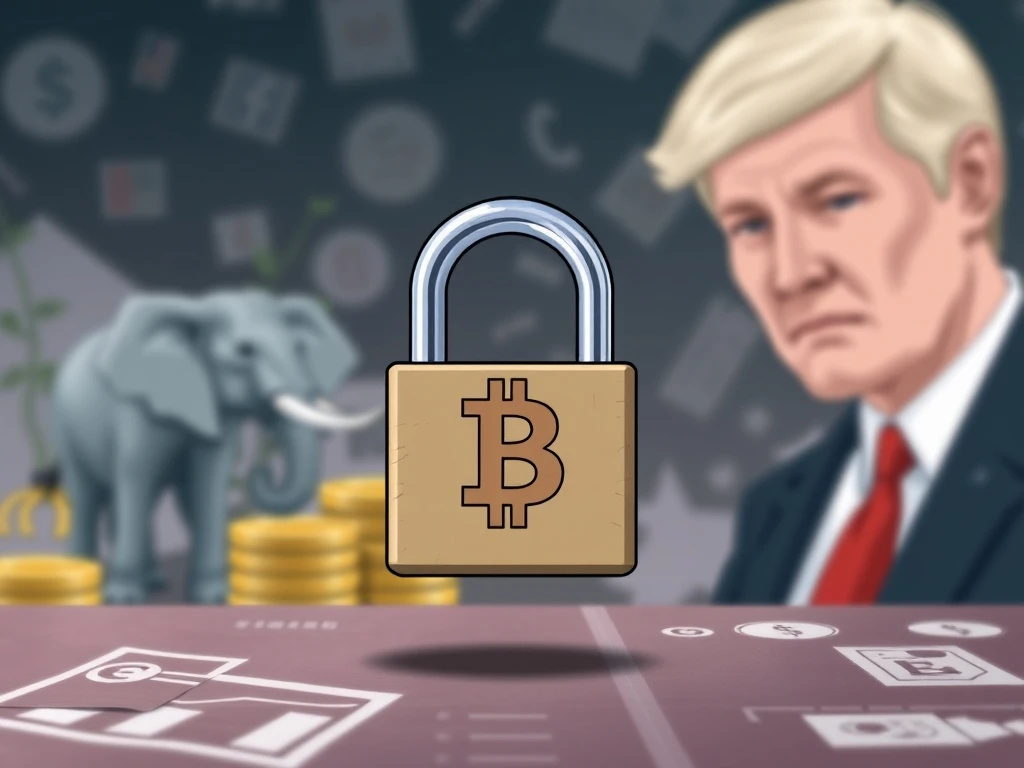
The cryptocurrency world often faces intense scrutiny. Recently, a significant controversy has emerged around WLFI crypto, a project reportedly linked to former US President Donald Trump. A crypto developer has made serious allegations, claiming his funds were unjustly frozen. This situation highlights ongoing concerns about trust and transparency within the digital asset space.
Developer Claims WLFI Crypto Stole Funds
Bruno Skvorc, a prominent Polygon DevRel, publicly accused World Liberty Financial (WLFI) of illicitly seizing his assets. He shared an email from WLFI’s compliance team. This communication flagged his wallet address as “high risk” due to alleged blockchain exposure. Consequently, the team stated his tokens would not be released. “TLDR is, they stole my money,” Skvorc wrote on X. He further lamented the perceived lack of recourse, suggesting the situation resembled a “new age mafia.” This strong accusation underscores the developer’s frustration and sense of helplessness. Skvorc asserted that he was one of six investors subjected to a 100% token lockup from the outset. He questioned why accepting funds from his address was not considered “high risk” initially, but unlocking owed money into it suddenly became so. This disparity raises significant questions about WLFI’s internal policies and their application.
The Broader Issue of Frozen Tokens
Skvorc’s experience is not isolated. The freezing of digital assets, or frozen tokens, has become a recurring issue in the crypto industry. These incidents often spark widespread debate. They touch upon the core principles of decentralization and user control. In Skvorc’s case, the “high risk” flags reportedly stemmed from several past interactions. These included a transaction via crypto mixer Tornado Cash. Indirect links to sanctioned entities like Garantex and Netex24 also contributed. Furthermore, a previous interaction with a now-blacklisted dashboard was cited. These technical details complicate the narrative. They show the intricate web of blockchain transactions. Skvorc, based in Croatia, is a blockchain developer who worked on Ethereum 2.0. He also founded RMRK, a company focused on multi-resource NFTs in gaming metaverses. His professional background lends weight to his claims. This situation serves as a stark reminder of the potential pitfalls in an unregulated or inconsistently regulated market.
Understanding Flawed Blockchain Compliance Tools
The incident ignited widespread criticism regarding the efficacy of blockchain compliance tools. Onchain sleuth ZachXBT weighed in on the matter. He explained that automated tools frequently flag addresses as “high risk.” This can happen for reasons that are trivial or even incorrect. For instance, simply interacting with decentralized finance (DeFi) contracts or exchanges can trigger alerts. ZachXBT recounted assisting a team with manual address reviews for a presale. Popular compliance tools had labeled these addresses as high risk. The reason? Unrelated activity several hops away on the blockchain. “These tools are deeply flawed,” ZachXBT concluded. His insights reveal a critical vulnerability. The reliance on automated systems, while efficient, often lacks the nuance needed for accurate risk assessment. This flaw can unjustly penalize legitimate users. It also undermines trust in the systems designed to protect the ecosystem. Therefore, a balance between automation and human oversight is crucial for effective compliance.
High-Profile Impact: Justin Sun’s WLFI Experience
The controversy extended to another prominent figure in the crypto space. Tron founder Justin Sun also revealed his WLFI token allocation had been frozen. His wallet was blacklisted after blockchain trackers flagged a $9 million transaction. This triggered accusations that he had started selling his holdings. Sun expressed his dismay in a post on X. He labeled the freeze “unreasonable.” He urged World Liberty Financial to unlock his tokens. Sun emphasized that the decision went against the core values of blockchain technology. He asserted that tokens are “sacred and inviolable.” This high-profile incident further intensified the debate. It showed that even well-known figures are not immune to such issues. Sun’s public appeal underscores the frustration experienced by those whose assets are locked. It also highlights the need for clear, consistent, and fair policies within crypto projects. The involvement of such a notable figure amplified the scrutiny on WLFI and its operational practices.
Allegations of a Trump Crypto Scam and Investor Concerns
The allegations against WLFI have naturally drawn attention due to its reported connections to Donald Trump. This link adds another layer of complexity to the unfolding drama. Projects associated with high-profile political figures often face increased scrutiny. Any hint of impropriety can quickly escalate into a significant scandal. The “scam of all scams” label used by Skvorc resonated deeply within the crypto community. It fueled concerns about the integrity of politically linked crypto ventures. Investors in Trump crypto projects are now watching closely. They seek clarity and reassurance. The incident raises questions about the due diligence performed by investors. It also highlights the potential risks associated with projects that blend finance and politics. Trust is paramount in the crypto market. Allegations of a crypto scam can severely damage a project’s reputation. They can also erode broader investor confidence. This is especially true when political figures are involved. The controversy thus serves as a cautionary tale. It emphasizes the importance of thorough research before investing in any digital asset, regardless of its endorsements.
The ongoing saga involving WLFI, frozen tokens, and prominent crypto figures like Bruno Skvorc and Justin Sun underscores critical challenges facing the crypto industry. From the reliability of blockchain compliance tools to the broader implications for politically-linked projects, these events demand careful attention. As the digital asset landscape evolves, the need for transparent practices, robust security measures, and equitable dispute resolution mechanisms becomes increasingly vital for fostering a trustworthy and sustainable ecosystem.





